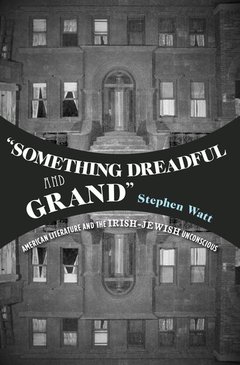"Something Dreadful and Grand" American Literature and The Irish-Jewish Unconscious
Langue : Anglais
Auteur : Watt Stephen

"Something Dreadful and Grand": American Literature and the Irish-Jewish Unconscious takes its title from an essay that introduces John Patrick Shanley's Outside Mullingar, a text that marks over 150 years of the so-called "Irish play" on the New York stage. This book traces the often uncanny relationships between Irish- and Jewish-America, arguing for the centrality of these two diasporic groups to the development of American popular music, fiction, and especially drama. But more than this, the book reads such cultural forms as tenement fiction, Tin Pan Alley music, and melodrama as part of a larger "circum-North Atlantic" world in which texts and performers from Ireland, Europe, and America were and still are involved in a continuous cultural exchange within which stereotypes and performances of Jewishness and Irishness took center stage. For this reason, such Irish writers as James Joyce, Bernard Shaw, and Sean O'Casey played pivotal roles in the development of modern American culture, particularly as they influenced and interacted with writers like Elmer Rice, Clifford Odets, Henry Roth, and many others. Such Irish-American writers as Eugene O'Neill were similarly influenced by their interactions with Jewish-American writers like Michael Gold and Edward Dahlberg. While focusing on the modern period, this project traces a genealogy of modern drama and fiction to the nineteenth century stage in which Irish and Jewish melodrama-and the appearances of international stars in such roles as Shylock and Leah, the Forsaken-shaped the often contradictory and excessive dimensions of ethnicity that are both allosemitic and allohibernian. Borrowing a term from psychoanalytic theory, I also explore the larger dimensions of an Irish-Jewish unconscious underlying cultural production in America. The closing chapter considers more recent representations of Irish-Jewish interactions by John Banville, Brendan Behan, Norman Mailer, and Harold Pinter; and examples from a newer immigrant literature bring this discussion into the present.
Stephen Watt is Professor of English, Theater, and Drama at Indiana University. His previous books include Beckett and Contemporary Irish Writing (Cambridge UP, 2009) and Ian Fleming and James Bond: The Cultural Politics of 007 (Indiana University Press, 2005).
Date de parution : 08-2015
Ouvrage de 272 p.
23.4x16 cm
© 2024 LAVOISIER S.A.S.



